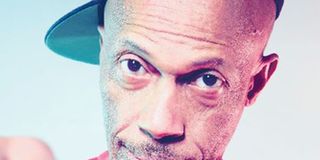A CHAT FROM LONDON: History teaches us the past so as to shape the present

History is not just about recalling wonderful and tragic events. Or memorable places, years and names of superstars. The year Shaka Zulu fought the invaders, and Chiefs Meli and Sina were hanged. Or Idi Amin fled in 1979 after terrorising his Ugandan people. Or the 2011 Japanese tsunami and 2001 New York’s September Eleven...
...History is more than that.
History is a teacher.
That is why politicians always say, history will look at their actions.
Legacy.
During his October 1953 court defence, the late legendary Cuban leader, Fidel Castro, declared that “history will absolve” him - meaning his operation to free Cubans from military tyranny and foreign rule would be analysed (and looked in context) by future generations.
If we take the big bloody wars and rebellions- yes we might ask what was the significance of Napoleon, Maji Maji and Mau Mau? What are the lessons?
That is how we come to art.
Art helps us reconstruct our thinking and perceptions. The historical films. I learnt a lot about the long, painful Vietnamese war against Americans through watching Hollywood’s “Platoon” by Oliver Stone (1986). Before Platoon, we believed American soldiers were the tough dudes, the heroes. But Mr Stone was one of them. He knew what actually happened from experience. Platoon illustrates how complex the war was. How young American men trembled and feared and were at times forced to do awful things (like burning peasant villages) merely to prove a pointless, egoistic, cowardly, intent.
What about historical poems, novels and music?
Recently I read a book by a London-based English writer. Read it because I know the guy. Knew he was married to a Ghanaian and he has been around Africans. Sounds interesting, right? I was curious about this work. I knew Robert J Fanshawe had been in the army, but not much more.
The cover of the novel has a picture of two bombed houses (probably London), trenches (filled up sacks where soldiers hid, slept and fought) plus a man in uniform. He has a gentle face, he is white, wearing a metal helmet; playing a violin. Now that is something. A soldier playing a musical instrument? His character name is Cello. Sensitive chap, who refuses to fight in the First World War, deserts and is subsequently shot “for cowardice...”
Yes, a deserter.
Serious crime in war; in the army.
What else?
Before getting executed, Cello sings and plays his violin. His friend, Ben, witnesses this and is very, touched, very confused. Traumatised. The story is about Ben. Afterwards. His memories. And what goes on later. Through the eyes and ears and lips of Ben we meet Cello’s sad parents. We get to understand the pain of parents losing children in this senseless war. We get to understand the racism at the beginning of 20th century.
How?
Ben’s other friend, a soldier fighting for the British, Damien; dies in action. Ben has to break the news to his Jamaican wife, Pearl. The black widow. Pause. Here we are reminded how “natives” from colonies laid down lives for the Empire. Africans sent to Burma and North Africa and other stations. What are their stories? How did their families and loved ones feel?
Through Ben’s safari we meet Pearl and Cello’s parents. There is a reminder of how the lynching of blacks occurred in the USA. How white soldiers treated and spoke about (and to), blacks. How women straggled for the right to vote. London Suffragettes - hundred years ago. In 2018 women are fighting for equal pay. In 1918 it was more than that.
Robert J Fanshawe has produced a masterpiece that can teach us a couple of things. War is ugly. Love is possible. The 70 year old ex marine revealed that there are two more books to continue this tale of history.
Mr Fanshawe: “The last part will be the end of the story, but at the same time showing that a story such as the First World War.... never has an end...it will take up the story of the families involved in greater detail.”
Yes. Wars break families. Torments people. And although The Cellists Friend (available on Amazon and Kindle) might be an isolated London novel, Robert Fanshawe thinks, such narratives have a deeper legacy.
Elaborate Mr Fanshawe.
“The film ‘Platoon,’ - is a good case and I would also mention Full Metal Jacket, a brutal and real film. These films help provide a background cultural tapestry to create something that is relevant to today. Any message in your writing cannot be out of tune with the culture of the day. I would also mention two more recent films; Saving Private Ryan, and Hacksaw Ridge, both of which have a message which challenges the ‘Gun-Ho heroism,’ of the traditional idea of war.”




